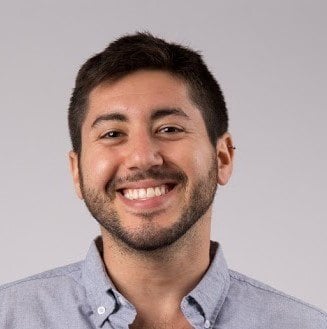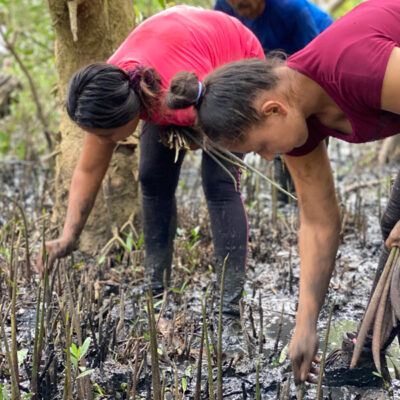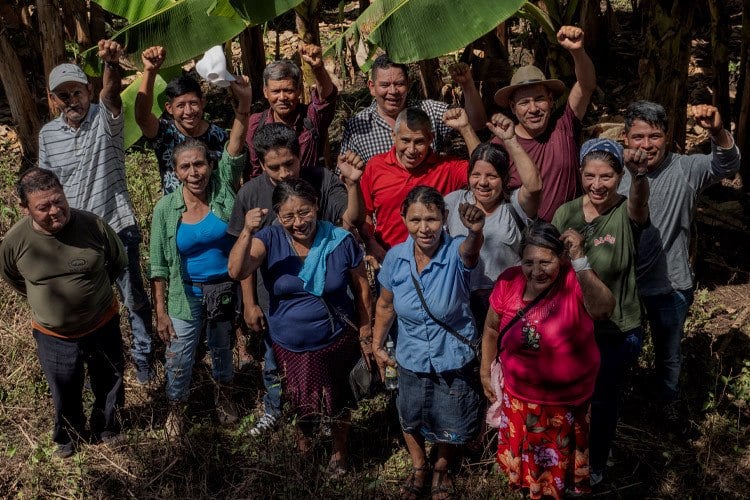
On the edge of a field of banana trees outside the village of Linares, deep in the jungles of El Salvador, over a dozen disabled war survivors are scribbling down a recipe for organic, homemade fertilizer. Wilfredo Pena, the agricultural coordinator of AJWS grantee Asociación de Lisiados de Guerra de El Salvador (ALGES), is walking them through the process, step by step. Molasses, milk, manure and minerals — stir and let them sit.
“We’re done using poison,” he says. “When we use healthy, natural products to grow our crops, everything benefits. Our health, our environment, our food, our communities.”
Wilfredo leads these trainings for collectives of war-disabled people across the country. At the close of El Salvador’s civil war in the 1990’s, thousands of veterans adopted agricultural lifestyles; now that they are aging, ALGES is educating them about sustainable, natural methods to keep their bodies and lands healthy. After decades of small-scale farming with harmful pesticides — resulting often in hospitalization and sickness — they are ready for change.
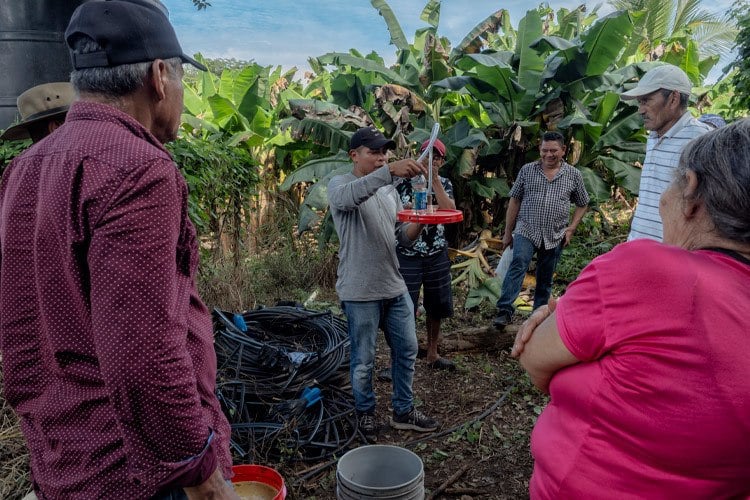
A plane flies overhead; instinctually, the group ducks for a moment, then laughs. One elderly farmer yells: “Just like old times!”
Wilfredo grins and says, “We could’ve never imagined back then that one day, we’d stand here together, unafraid of the bombings, and create natural fertilizer together to grow healthy, organic food for our families.”
ALGES was formed in 1997 as an organization to ensure the rights of fighters, their families and communities (including access to healthcare and retirement pensions) were respected. But over the years, ALGES has transformed itself as the lives and needs of their members have changed. As the fighters returned to civilian life, many of them adopted agricultural livelihoods. Today, ALGES is a movement of about 5,000 disabled survivors healing together from the civil war; about a quarter of their members are women. Across the country, ALGES leaders train these people in sustainable, organic agricultural practices — protecting the water, soil, air and health of El Salvador’s war-injured.
ALGES has been at the forefront of El Salvador’s environmental activism and advocacy for decades. The movement partners with other organizations, including other AJWS grantees, to advocate for laws that protect land, water and resources (including El Salvador’s recent law establishing water as a human right), as well as the rights of campesinos — or peasant farmers. The movement also provides a social support network for this population, most of whom are now aging and disabled from the armed conflict.
48-year-old Margarita Lopez Ortiz was just a child during El Salvador’s civil war — but she was not spared the suffering. At 14, she was shot in the foot and nearly lost her ability to walk. Her family, poor campesinos who’d been exploited by rich landowners for generations, all joined fighting forces. By the time peace accords were signed in 1992, Margarita had lost 9 members of her family.
Still, when the civil war ended and peace accords were signed in 1992, Margarita was thrilled, as the accords offered tracts of land to poor farming families. Now, three decades later, Margarita still remembers seeing her family’s field for the first time. She recalls sleeping under a mango tree as her family slowly but surely constructed their new home on their own land. She remembers the promise of a new life as landowners.
But with no money, many families adopted the cheapest and quickest methods to grow monocrops like corn — namely, using harmful pesticides and chemicals. ALGES recognized a new threat and began mobilizing the communities to embrace healthier practices. Today, Margarita is devoted to organic farming methods that keep her crops, her land, and her family healthy.
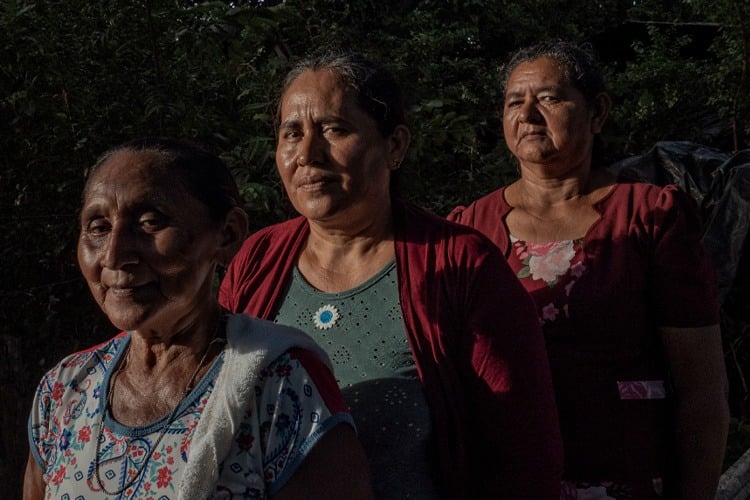
“We practice everything that ALGES teaches — that’s how I feed my family,” she says. Margarita grows coconuts, mangos, lemons, plantains; she makes fresh cheese and keeps over 30 hens. Her family sells eggs and fruit — and survives on whatever isn’t sold. What’s more, ALGES’s workshops connect these aging veterans with one another, creating supportive social networks to cope with the ongoing trauma of war.
“Part of ALGES’ strength is that they connect us in ways we never could on our own. We’re learning together,” says Margarita. “Women here are valued, and valuable. We make things work. We helped the country move on after the war, and we help the country move on today. Simply put: With no women, there’s no life.”
As the sun sets in Linares, the group of campesinos head back to their own small farms, equipped with new knowledge to keep their food, and their families, as healthy as possible. Once fighters in their country’s civil war, they are now fighting for a different cause.
“As a campesino, the earth gives us life. She gives us everything we need to survive,” says community member Jose Santos Cruz Rosa. “So now, we must take care of her in return — to ensure her survival as well.”
